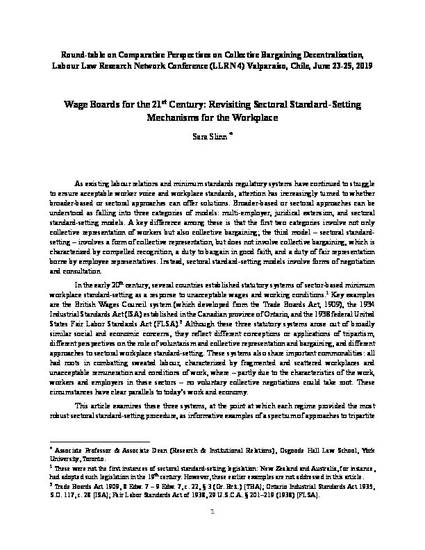
As existing labour relations and minimum standards regulatory systems have continued to struggle to ensure acceptable worker voice and workplace standards, attention has increasingly turned to whether broader-based or sectoral approaches can offer solutions. Broader-based or sectoral approaches can be understood as falling into three categories of models: multi-employer, juridical extension, and sectoral standard-setting models. A key difference among these is that the first two categories involve not only collective representation of workers but also collective bargaining; the third model – sectoral standard-setting – involves a form of collective representation, but does not involve collective bargaining, which is characterized by compelled recognition, a duty to bargain in good faith, and a duty of fair representation borne by employee representatives. Instead, sectoral standard-setting models involve forms of negotiation and consultation.
Available at: http://works.bepress.com/sara_slinn/49/

This conference paper was presented at the Labour Law Research Network Conference (LLRN 4) Valparaíso, Chile, June 23-25, 2019.